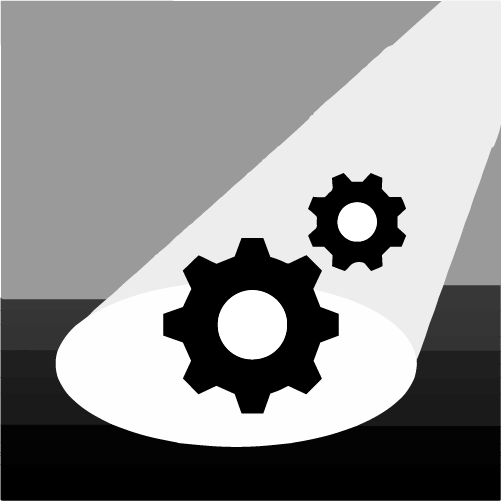I never meant to be a technical writer, or whatever it is that I now do for a living. Whatever it is, I really like it, though. My career has had its ups and downs, and if there is such a thing as a normal career, mine is not it. Probably the most un-normal thing about my career, though, is how it got started.
My career started over a jelly doughnut. After leaving the seminary where I had spent a few years studying for the Catholic priesthood, I went on a brief vacation to Europe to unwind. When I returned, I had to get about the business of finding a job. Or something. I hadn’t even really begun yet when there I was, standing around in my parish’s hall eating the jelly doughnut. A man I knew, Paul, came up and started chatting me up. “How’s your transition going?” “Went to Europe, did you? How was that?” Answering the questions and keeping up conversation was made challenging because my jelly doughnut was beginning to ooze like a puppy poking its nose through a gap between a door and the jamb. “You have work yet?”
“Um, well, not just yet.” A blob of jelly escaped its confines and plopped onto my shoe. I played it off, but Paul glanced down at my shoe.
“Well, what can you do?” Paul asked. The answer to this question was vaguer than you’d expect unless you know that my only university degree is a bachelor of arts from a liberal arts college. I studied history.
“Well, I can study,” I said unconvincingly.
“Study? That’s good,” Paul responded, unconvinced.
“Research. I learn quickly.”
“I see.”
Then, as an afterthought, I added, “I can write.”
At this, Paul’s eyes lit up. “You can write?” he repeated. His hushed tone was more appropriate to a great discovery: “You found gold?”
“You mean English, right?”
“Yes, English. You can write English?”
“Um, yes. Can’t everybody?”
Paul chuckled. “Heh. Not where I work, man. Say, listen, what are you doing Monday?”
I was caught up on the bit about English, so it took me a second to respond, and when I did, my response, “Well, I’m not working," sounded a bit more petulant than was quite right.
“Why don’t you come into my office? I think we’re trying to hire a technical writer. Very difficult to find a good one, you know. Why don’t you come in, look around, and you can talk with the right people there.”
I was intrigued by the thought of eating and getting my own place to stay. Still, there was this nagging concern. Had he said “technical writer”? I thought I’d been pretty clear that English was my thing. Not technical. Whatever that would mean. Still, food is food, and worth a shot. “Um, sure. So, um, technical writing?”
“Yeah. Technical writing. You think you can do it?”
“We’re still talking about English, right?”
“Yes. Well, computer software. In English.”
“Yeah,” I said, about as convincingly as I sounded when I told him that I could study. “For sure.”
“Great,” he said. He gave me his card with the office’s address and then, looking around nervously, said to nobody in particular, “I think one of my kids is setting fire to something or poking somebody. I’d better…” and he went.

Meanwhile, I turned on my heel, returned to my sister and brother-in-law’s where I was staying, temporarily I hoped, and started looking around on his bookshelves. This all happened when books were still a thing but were becoming a not-a-thing, at least in my industry. My brother-in-law works in IT, and I thought I had seen a dull-looking but suddenly relevant book on his shelf. And there it was: the Microsoft Manual of Style. Also present were a number of user manuals to various software applications. I spent the rest of the day studying their style and trying to figure out what technical writing might mean.
When Monday came around, I went into the office at the address that Paul had given me. The receptionist showed me to Paul, and Paul brought me to a room with a computer. A man about my age, an engineer as it turned out, joined us and began to walk me through a software suite as Paul narrated very eagerly, very proudly. The software had a clunky user interface that masked something really cool: software for managing multiple security appliances of varying types, makes, and models in a single platform. It doesn’t sound revolutionary, but when network video recorders were just coming onto the scene, it was pretty new stuff.
“What do you need me to write, Paul?”
“Well, anything, really.”
“Anything?”
“Yeah, we don’t have any documentation yet. Pick something that needs documenting, and document it.”
So document I did. I found a spot of the interface that looked particularly unwieldy apparently intended to complicate a task that could have been simple and was certainly important. I wrote up a set of step-by-step instructions for “Doing Such-and-Such.” I took great care to clearly call out informational notes separate from the various steps to be done. When I’d finished, I showed my work to Paul. “Very good. Very clear. Except…”
“Except?”
“Can you add more pictures?” he asked.
I hadn’t expected pictures. I could do pictures. After fiddling with the print screen button, I added some pictures.
“Beautiful. You’re hired.”
So that’s how I got started technical writing. How I got to where I am is another installment.
Life Skills Takeaway
- Most new jobs are made by small businesses.
- Small businesses are more likely than large businesses to hire someone based on potential as much as on experience.
